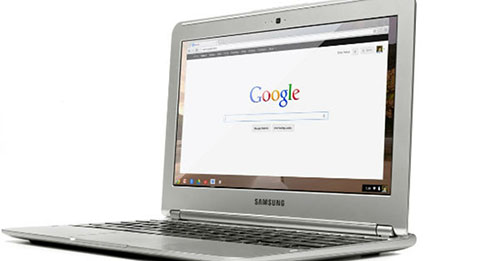This is a cool story — it initially appeared on The Atlantic, but I saw it over on Quartz, and ostensibly, it’s about the educational technology sector, which is damn near close to $10 billion/year (up 2.5 percent from last year). There are a ton of players in this space, but the big ones (perhaps unsurprisingly) are Google (via the Chromebook) and Apple (via the iPad). Around 2010, the iPad was all the rage in the educational world — my sister-in-law is a teacher, and I remember going to the Apple Store with her a few times and her trying out different apps that she thought might resonate with her students. I know a ton of teachers — I was one, briefly — and they were all extolling the virtues of the iPad in classrooms. As the thinking went, it would make lessons more dynamic, incorporate more “fun” content, and lead to student presentations that more closely mirrored real-life job presentations and skill sets.
Now, though, Chromebook has somewhat caught up — the market share of Google and Apple in the ed-tech space is pretty similar, but the tide of the situation seems to be heading towards Chromebook — and one of the main reasons why is a simple functionality issue:
While nobody hated the iPad, by any means, the iPad was edged out by some key feedback, said Joel Handler, Hillsborough’s director of technology. Students saw the iPad as a “fun” gaming environment, while the Chromebook was perceived as a place to “get to work.” And as much as students liked to annotate and read on the iPad, the Chromebook’s keyboard was a greater perk—especially since the new Common Core online testing will require a keyboard.
This is interesting. Apple definitely has a lot of money, and the conventional logic behind how they became successful again is that they successfully marketed their stuff as “cooler” (stuff you had to have), which for a long time Google wasn’t doing (you can argue that Google’s ads the last 2-3 years have been more emotional and storytelling-centric than Apple’s, although that might be a post for another day).
Now, though, the simple fact that a Chromebook looks more like something you’d work on — and an iPad looks more like something you’d play on — is hitting Apple harder in the ed-tech space. By no means is ed-tech bigger than “overall consumer,” and like I said before, Apple’s doing fine.
There is also this, and remember — collaboration is something people will claim to value until the end of days:
Hillsborough educators also tend to emphasize collaboration, and they found that Google’s Apps for Education suite—which works on either device—was easier to use collaboratively on Chromebooks.
Whole thing’s interesting, though — Apple built itself on being sleek and cool (probably should have said “re-built itself”) and initially, that worked for them big-time in ed-tech (a $10 billion industry). Now Google is sleek and functional and cheap and performs well, and … you’re seeing that play out broadly too. Apple is now in the midst of what NASDAQ calls “respectable growth,” while Google is in a period that may lead to “hyper growth.” They’re looking at potentially 20 percent sales growth in 2015 and 2016, for example.
